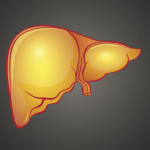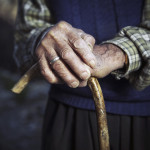A new survey confirms that rates of sexual dysfunction are higher in HIV-positive men who have sex with men (MSM) compared with HIV-negative MSM, according to findings published in the July issue of AIDS Patient Care and STDs. However, in the absence of other important factors, such as older age or also having an AIDS diagnosis, people living with HIV were no more likely to experience one common sexual challenge: erectile dysfunction.
Though sexual dysfunction research involving HIV-positive people isn’t common, there have been at least two studies that have suggested higher rates of sexual dysfunction—notably erectile difficulties— among HIV-positive men, which couldn’t be chalked up to age, CD4 count or use of antiretroviral (ARV) therapy. Neither of these studies used a special scale designed to measure erectile dysfunction (ED) in MSM, nor did they measure another common issue among men—ejaculation problems—or use an HIV-negative control group.
To better characterize the incidence of sexual dysfunction in MSM, Alan Shindel, MD, University of California in Davis, and his colleagues, conducted an online survey of 1,361 MSM. The survey included two measurement tools—a sexual dysfunction scale specifically designed for MSM and a tool for assessing ejaculate problems.
Of those surveyed, the majority (83 percent) were HIV negative, while 9.2 percent had HIV without an AIDS diagnosis and 8.1 percent had both HIV and history of an AIDS diagnosis.
All three groups were similar, though HIV-positive men were more likely than HIV-negative men to have neurological disorders, depression and urinary tract problems. They were also much heavier users of methamphetamine and other street drugs and reported higher use of medication to treat ED (e.g. Viagra)
Shindel and his colleagues found that while HIV-positive men overall reported higher rates of both ED and ejaculation problems than HIV-negative men at all ages, this difference didn’t entirely hold up when other factors were included.
Specifically, the team found that HIV-positive men without an AIDS diagnosis were no more likely—when other factors were taken into account—to have ED than HIV-negative men. Men with HIV and an AIDS diagnosis, however, were more likely to have ED.
As for ejaculation problems, HIV-positive men (both with and without AIDS), did have significantly more problems than HIV-negative men, but only if they were younger than 40. This difference did not hold up in older men.
The primary factors associated with greater ED and ejaculation problems were older age, diabetes and urinary tract problems.
“Some previously established risk factors for sexual problems (diabetes, increasing age, depression) are associated with increased odds of erectile dysfunction in [HIV-positive men] and these comorbid factors may be important determinants of ED in the HIV-positive population,” the authors conclude, adding, “There appear to be few, if any, significant direct associations between ejaculation problems and HIV infection although other conditions prevalent in the HIV-positive population may contribute to a higher burden of problems with ejaculation.”
Advertisement
Advertisement
Advertisement






1 Comment
1 Comment